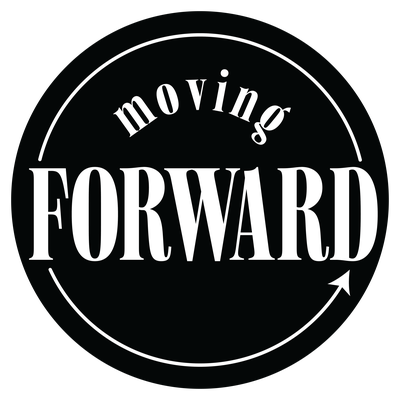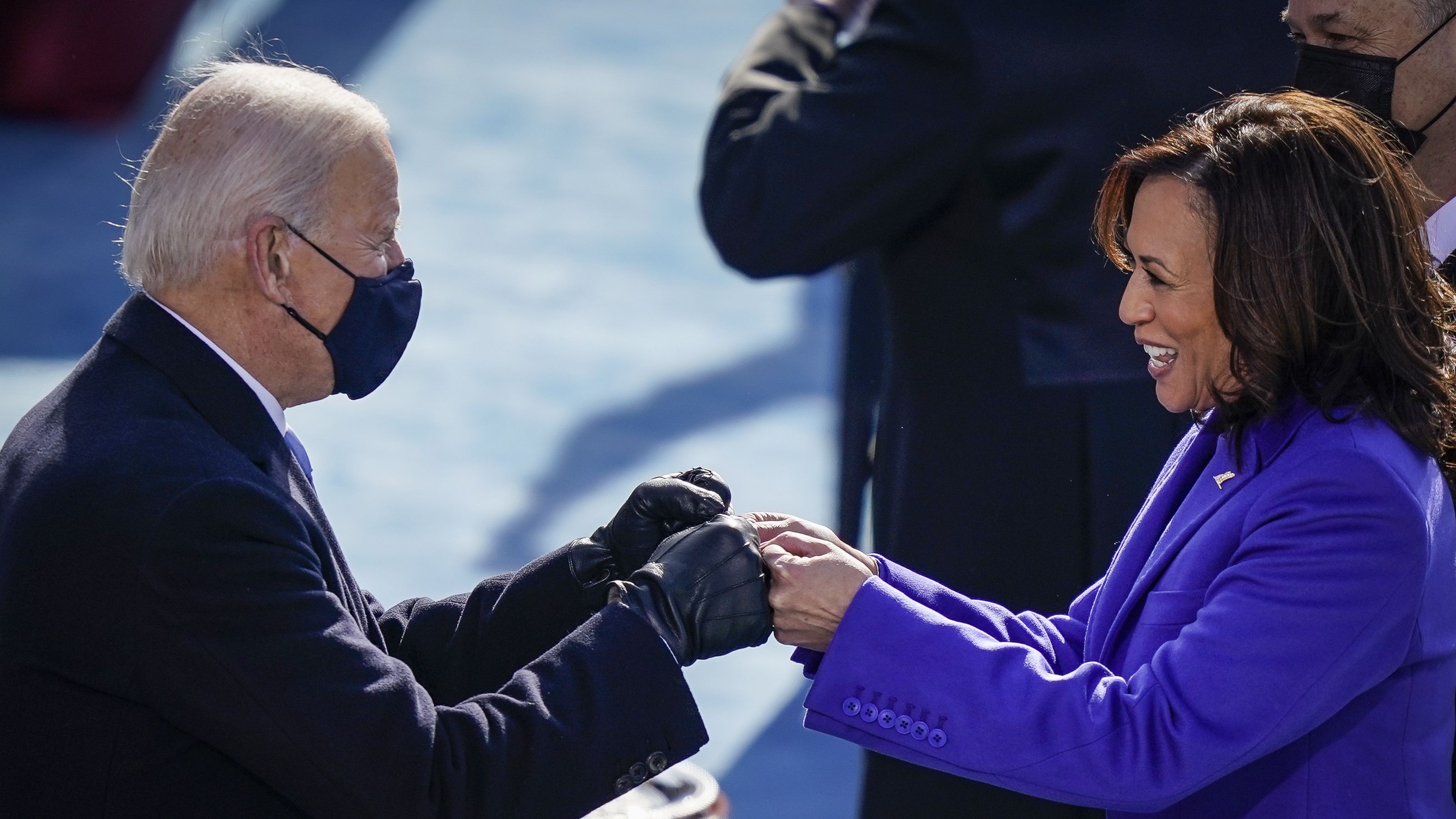To Move Forward, We Need to Redefine 'Normal'
Alicia Garza on why we can't let the comforting dawn of a new administration lull us into complacency.

In honor of the inauguration, Marie Claire's op-ed series Moving Forward asks influential and politically active women to examine the work that needs to—and can be—done by the incoming administration to reconcile an increasingly divided country.

America is breathing a deep sigh of relief after having temporarily intervened in the greatest threat to humanity in a generation. Yet though we may be breathing more deeply for the first time in years, we are facing a backlash for our victories. We cannot afford to do anything but be relentless in our quest to finish what we have started.
This year’s presidential election drove more people to the polls than almost any other election in history. For some, it was an opportunity for a rematch. In 2016, many voters thought it wasn’t possible for Donald Trump to be elected; after being proven wrong, some swore they wouldn’t again let an opportunistic politician take advantage of their complacency. For others, this election was an opportunity to bring their protest to the polls—after a full summer of marches and unrest related to racial injustice and terror, some saw the opportunity to vote as a way to demonstrate what they cared about most.
But for too many, participating in this election was driven by a desire to get back to normal, to resume business as usual. Certainly, 2020 has been anything but desirable. And for those of us who have lost our jobs, who miss gathering with our friends and family, who have lost friends and family to COVID-19, this election may have appeared as something close to Oz—if we could just get there we might be able to go back to what we knew prior to the pandemic. For some, perhaps, the formula was simple: Vote this time because there is a real threat in front of us. Then, once we’re sure there’s someone in place that can make us rest a bit easier, we, too, might go back to the things that concerned us before the election.
This is perhaps the most dangerous notion of all: that voting in a new administration means going back to "normal."

President Joe Biden and Vice President Kamala Harris at the swearing-in ceremonies on January 20, 2021.
We saw as much in the recent events at the United States Capitol, where white supremacists, in support of Trump, stormed the building with the intention of invalidating the results of the Presidential election and to kidnap or otherwise harm members of Congress. The truth is, things weren’t great before the pandemic hit and they certainly were tenuous before Trump's election. White supremacy has always been normalized in this country; the insurrection at the US Capitol wasn’t the first sign of it. In just the first year of Trump’s presidency, racists marched through Charlottesville, Virginia, with tiki torches yelling “Jews will not replace us!” Trump called Haiti a “sh*thole country.” He allowed Stephen Miller to design a set of immigration policies that put families in cages and separated mothers from their children permanently, and which resulted in a child and her father being found dead in a river near the border. Those are just a few examples from the last four years, and there are many more from the years prior.

A scene from the Capitol insurrection on January 6, 2021.
Before the pandemic, we had a president who was banning Muslims from entering the country. Corporations were getting richer as our families were finding it harder and harder to make ends meet. Healthcare was elusive for millions of people—especially for Black people living in the southern region of the country. Black people were being murdered by police and vigilantes but also by government disinvestment and neglect. America was on the wrong path before this pandemic and prior to Donald Trump, so we must see this moment as an opportunity. Yet it cannot be only an opportunity, it must be an imperative. Otherwise, we can be assured that we will see another Donald Trump four years from now—if it’s not Donald Trump, himself, running for a second term.
Get exclusive access to fashion and beauty trends, hot-off-the-press celebrity news, and more.
The reckoning that this country is facing is not just a racial justice one. America is deciding who it will be, not just for ourselves, but for the rest of the world. This is the time when we get to decide whether we will go forwards and act on the painful lessons we’ve learned, or if we will downshift into complacency and normalcy that was anything but normal. Millions more people participated in democracy in 2020 than ever before, and we can’t go back to ignoring politics or being uncomfortable discussing politics, or seeing politics as a "personal matter." We have to hold America accountable to democracy, of the people and by the people.
America is deciding who it will be, not just for ourselves, but for the rest of the world.
For everyone who is dissatisfied with government and politicians, this moment was made for you. For those who have been suffering in silence under the weight of debt that makes you breathless, this moment was made for you. For anyone who has lost a loved one to COVID-19, this moment is for you. This is our opportunity to finish what we started. We actually have no choice if we hope to live any kind of normal lives.
Everyone is asking the question of what is next after the election, but my answer remains the same: Bring the same energy that you brought to the presidential election to an ongoing engagement in civic life. Stay informed about the decisions being made in your name and weigh in. Activate your friends and family to make their voices heard. Take your protest to the polls but also keep it in the streets. Refuse to be lulled back to sleep, and fight back against white supremacy and white nationalism each and every opportunity you get. What we accomplished together in November wasn’t luck or divine intervention. It was work, and it took participation and dedication to turn our longing into action. What change looks like from here is the same formula. It is always knowing that whatever you leave on the table, you leave for someone else to eat.
Alicia Garza is Principal at the Black Futures Lab, author of The Purpose of Power and a co-creator of the Black Lives Matter Global Network.
RELATED STORIES

